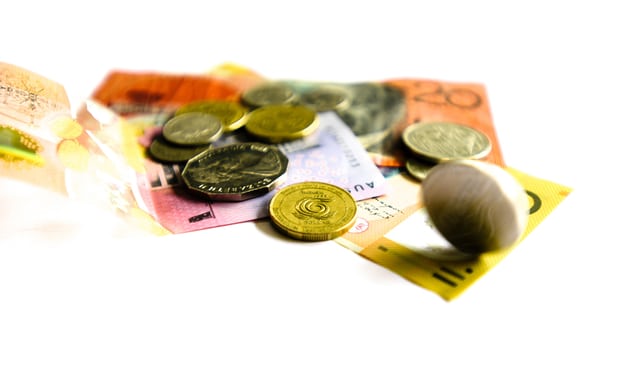Cash payment crackdown to counter tax evasion and black economy. Tuesday’s May 08 2018 federal budget introduces tax avoidance counter-measures aimed at individuals and companies.
Australians will face a crackdown on cash-in-hand payments in an attempt by government to reduce money laundering and tax evasion.
The Turnbull government has turned its attention to the “black economy” in an attempt to raise billions of extra dollars and intends to limit cash payments for purchase goods and services to $10,000.
The measure was announced in Tuesday’s budget, which introduced a suite of tax integrity measures aimed at individuals and companies.
“The black economy undermines community trust in the tax system, gives some businesses an unfair competitive advantage, puts pressure on margins of honest businesses, and often includes exploitation of vulnerable employees through the underpayment of wages and loss of entitlements,” said Kelly O’Dwyer, the financial services minister.
The government’s largest black economy measure is a crackdown on illicit tobacco, which it expects to raise $3.6bn over the next four years.
It says the three main sources of illicit tobacco in Australia are smuggling, leakage from licensed warehouses, and illicit domestic production. To combat this, it will create an illicit tobacco taskforce with powers to prosecute organised crime groups at the centre of the illicit tobacco trade.
It will introduce permits for all tobacco imports (except tobacco imported by travellers within duty-free limits), and require tobacco importers to pay all duty and tax liabilities upon importation. That is a change from the current system where tobacco can be imported and stored in licensed warehouses prior to taxes being paid.
As part of the cash-in-hand crackdown the government will introduce an economy-wide cash payment limit of $10,000 to reduce money laundering and tax evasion, to apply from 1 July 2019.
It means transactions over $10,000 will have to be made through an electronic payment system or cheque when purchasing goods or services.
Transactions with financial institutions or consumer to consumer non-business transactions will not be affected.
The government is unsure how much money the measure will raise, however.
Meanwhile, in other measures, the government says companies will no longer be allowed to claim deductions for payments to their employees, such as wages, where they have not withheld any amount of PAYG from the payments, despite PAYG withholding requirements applying.
It will also remove deductions for payments made by businesses to contractors where the contractor does not provide an ABN and the business does not withhold any amount of PAYG.
For foreign investors, the government will crackdown on the use of so-called “stapled structures”.
It wants to make sure income earned in Australia, can be taxed by Australia. Those additional measures include strengthening the so-called “thin capitalisation” rules, which are meant to stop companies loading up on debt to shift profits offshore.
The government also wants to strengthen its anti-tax avoidance rules.
The measure will raise $400m in revenue over four years.

